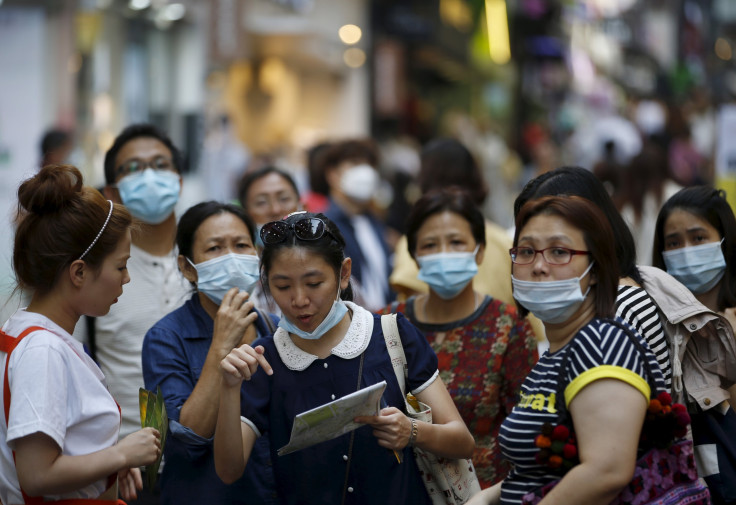Hospital At Center Of South Korea's MERS Suspends Services; Seven New Cases

SEOUL (Reuters) - A South Korean hospital suspended most services on Sunday after being identified as the epicenter of the spread of a deadly respiratory disease that has killed 15 people since being diagnosed in the country nearly four weeks ago.
The World Health Organisation (WHO) has called an emergency meeting for Tuesday on South Korea's "large and complex" outbreak of Middle East Respiratory Syndrome (MERS), the biggest outside Saudi Arabia, where it was first identified in humans in 2012.
MERS was diagnosed in South Korea on May 20 in a businessman who had returned from a trip to the Middle East and has spread through hospitals.
It has stirred fears of a repeat of a 2002-2003 outbreak of Severe Acute Respiratory Syndrome (SARS), which began in China and killed about 800 people globally.
South Korea's Ministry of Health reported seven new cases on Sunday, taking the total to 145, as a 15th person died, an official in Busan city said.
The people who died were all elderly or people with existing ailments.
The Samsung Medical Center, a prominent hospital in the capital, said it was suspending all non-emergency surgery and would take no new patients to focus on stopping MERS after more than 70 cases were traced to it.
Its tally has surpassed the number at a hospital in Pyeongtaek, where the first patient sought treatment.
Among the cases at the Samsung Medical Center was an emergency ward orderly who worked for days after developing symptoms, coming into contact with more than 200 people, the hospital said.
"We apologize for causing great concern as Samsung Medical Center became the center of the spread of MERS," the hospital's president, Song Jae-Hoon, told a news conference.
"This is entirely our responsibility and failing as we did not properly manage emergency-room staff."
The orderly is believed to have picked up the virus from an infected person who waited three days in different parts of the emergency ward, with nearly 900 staff, patients and visitors coming and going.
All of South Korea's cases are believed to be linked to hospitals or related services and have been traced back to the businessman who returned from the Middle East.
The WHO said on Saturday it saw no sign the disease was spreading in the community and there was also no indication the virus in South Korea was mutating into one more easily passed between people.
But it said South Korea should anticipate more cases and recommended stepped up disease control and prevention measures.
MERS is caused by a coronavirus from the same family as the one that caused SARS. There is no cure or vaccine.
Authorities have sealed off at least two other hospitals with patients and medical workers inside, and about 4,856 people are in quarantine, either at home or in medical facilities.
(By Jack Kim; Additional reporting by Seungyun Oh and Ju-min Park; Editing by Robert Birsel)



























